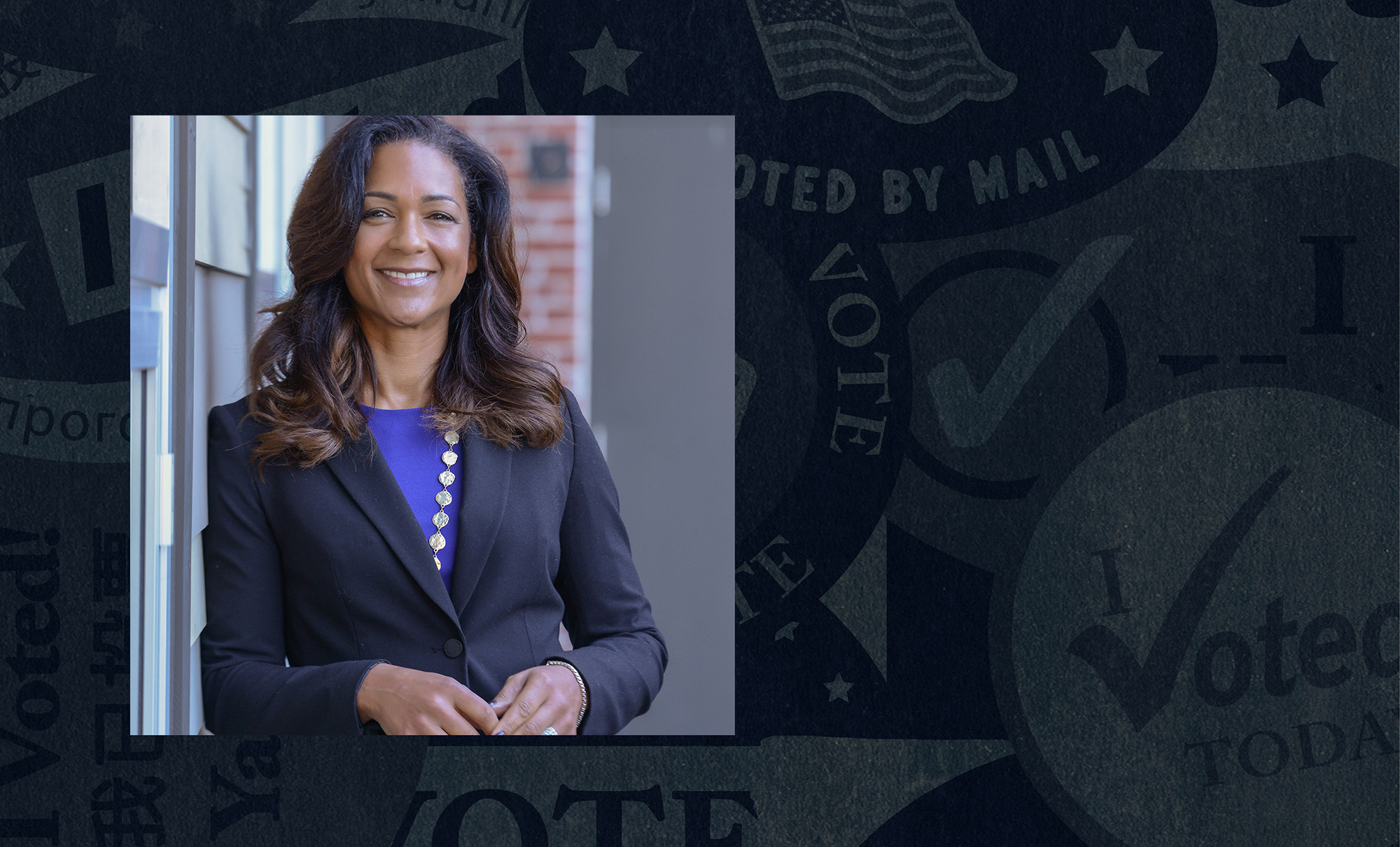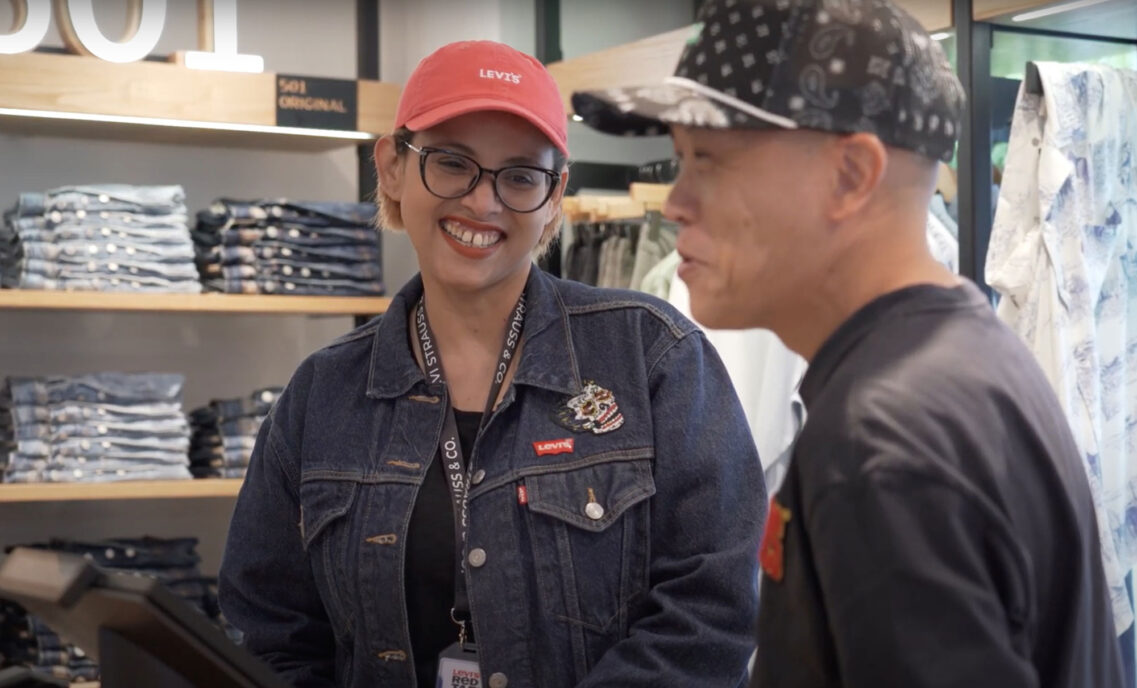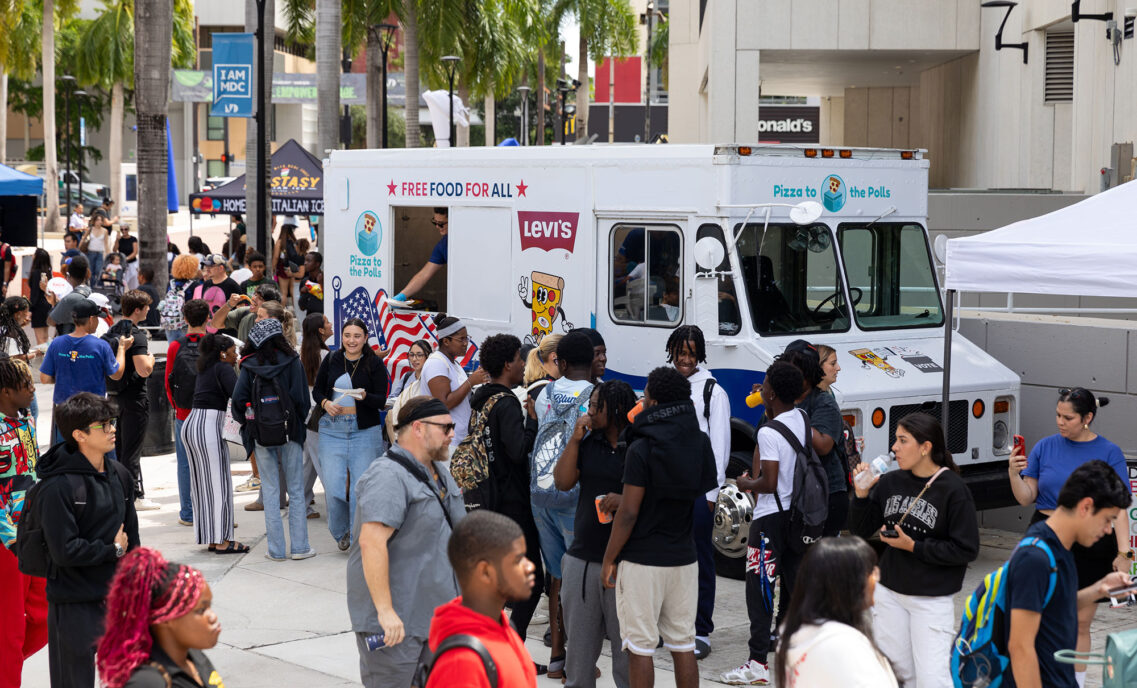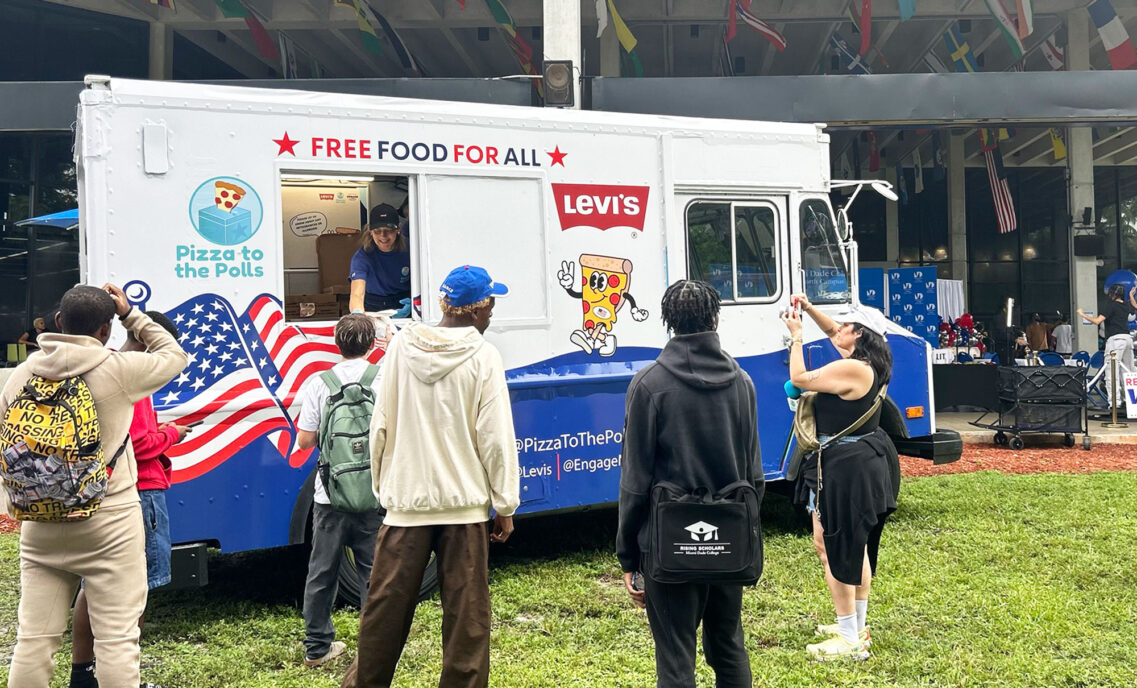The following blog post is authored by Aimee Allison, founder of She the People, an organization that engages a vibrant network of women of color — voters, organizers, movement builders, elected leaders — to transform democracy and turn non-voters into voters. The organization is one of 23 voting rights and engagement grantees that the Levi Strauss Foundation and Levi Strauss & Co. are collectively providing $2.6 million in funding.
When I was asked to lead one of the Instagram sessions for Levi’s “Use Your Voice: Live” on August 18, I paused. Not because I did not agree with the premise of the series or that I did not have a lot to say about this election and the role women of color have in it. But because today, the nation is commemorating the 100th anniversary of the 19th Amendment, allowing American women the right to vote. Only, that right did not extend to women of color—or the Black suffragists who fought so hard for it. Instead, it would be nearly five decades until women of color could freely participate in the democratic process.
I wondered how I would approach this subject as others were lifting the significance of this day up. And I could think of no better way than to speak to the legacy of the women who committed themselves to the cause, only to be denied the benefits of the victory.
It is because of them that She the People exists, why women of color are now the fastest growing voter bloc among any other group in the country — and why we have the first Black and Indian American woman as a vice presidential candidate today.
Among these women were Frances Ellen Watkins Harper, a celebrated writer and orator, who used her power of words to speak out about civil rights and suffrage. She believed that women could not win the right to vote unless Black and white women fought alongside one another. Mary Church Terrell was instrumental in organizing Black suffrage groups across the country that had formed after white leaders pushed them out of the mainstream suffrage movement. And of course, there was the indefatigable Ida B. Wells, co-founder of the National Association for the Advancement for Colored People and the first Black suffrage organization in Chicago. When she and other Black suffragists showed up at the national suffrage march in Washington D.C. in 1913, they were told to march behind the crowd. She refused, saying, “Either I go with you or not at all. I am not taking this stand because I personally wish for recognition. I am doing it for the future benefit of my whole race.”
Women of color from all different backgrounds joined the fight. Dr. Marvel Ping-Hua Lee immigrated to America from Hong Kong after earning an academic scholarship. At just 16 years old, she had already made a name for herself as a leader in New York’s suffrage movement. Maria Guadalupe Evangelina Lopéz served as a Spanish translator for the California suffrage movement in 1911. She organized rallies and gave speeches around the state in both Spanish and English about women’s voting rights. She is often credited with being the first in the state to deliver suffrage speeches in Spanish. And women in the Iroquois Nation had a direct influence on white suffragists who spent time with them and saw firsthand that they had equal political voices within their communities.
Who could imagine that what they were building was a powerful political force that in 2020 would become the key voting bloc critical to winning an economic, racial and gender justice agenda for the nation?
She the People is a natural evolution of their work. We are inspiring, connecting and engaging Black, Latinx, Asian American and Pacific Islander, Muslim and Native women to build political power for an agenda that prioritizes our issues and candidates. And we are working to turn out a million women of color voters across seven battleground states, where we know women of color are the margin of victory.
For the first time in history we have the first woman of color on the ticket, but make no mistake, the struggle continues. Across the country, we see signs of voter suppression that threaten all the gains we have made. That is why we must show up, undeterred and armed with the knowledge that a just and inclusive democratic process has always been shaped and fought for by women of color.
On this day, they are who I lift up.
Join Aimee in conversation with Danielle Atkinson, founder and executive director of Mothering Justice, today at 1 p.m. PT on @Levis Instagram for their Use Your Voice LIVE session. They will be talking about the anniversary of the 19th Amendment, the importance of representation in government, the power of women of color and what the 2020 election means for all of us.







